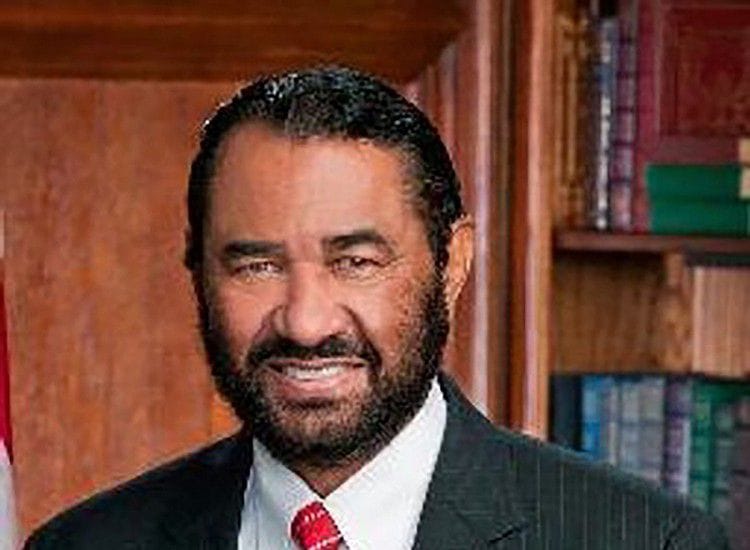House Republicans are taking swift action against Texas Democrat Al Green, who was removed from the House chamber after repeatedly interrupting President Donald Trump’s speech.
On Wednesday, GOP Representative Daniel Newhouse formally introduced a resolution to censure Al Green. The Texas lawmaker was escorted out by the House sergeant at arms after standing up and shouting during the early moments of Trump’s address to Congress. Speaking in the House, Newhouse, a Republican from Washington, called for punishment, arguing that Green’s multiple interruptions warranted an official rebuke—something once considered uncommon in the chamber.
A vote on Green’s censure is expected to take place on Thursday, according to a Republican aide.
Newhouse Justifies the Censure Move
Newhouse defended his decision, saying that Green’s actions had disrupted the event beyond acceptable limits.
“This was excessive. The interruptions continued, disturbing the entire night. I believed it needed a response,” Newhouse stated. “There must be respect for decorum in this chamber. Without it, what do we have? A place where everyone just shouts at each other?”
Efforts by House Democrats to block the resolution failed on Wednesday, ensuring the censure vote would proceed as planned.
For Newhouse, this move marks a significant moment. As a centrist Republican, he previously faced criticism from his own party for voting to impeach Trump in 2021. Since then, he has kept a low profile. However, by pushing forward with Green’s censure, he has drawn attention once again.
GOP Infighting Over the Resolution
Not all House conservatives welcomed Newhouse’s move. Some members had been working on a separate resolution of their own and were frustrated by his decision to act first. According to sources involved in drafting the competing measure, these lawmakers believed Newhouse was primarily trying to protect himself from a potential challenge by more conservative Republicans.
Outside Capitol Hill, Republican campaign strategists viewed Newhouse’s actions as a sign that he does not intend to retire this election cycle. Previously, some had speculated he might step down after narrowly defeating a GOP challenger in his last race.
Newhouse, however, denied that his motivation had anything to do with political strategy.
“This is not about me or my position in the party,” he told reporters. “It’s about maintaining order in the House. This could have involved any president or any lawmaker. The rules exist for a reason.”
House Prepares for the Vote
House officials expect the resolution to be given privileged status, meaning it will receive a floor vote within two legislative days. Though Republicans had initially aimed to hold the vote on Wednesday, the final timing remained uncertain, according to individuals familiar with the process.
Meanwhile, Al Green responded to the situation on Wednesday, saying he was not upset with the House leadership or those bringing the censure resolution against him.
“I will face the consequences,” he said.
However, Green stood by his actions, insisting that his protest came from a place of genuine concern.
“What I did came from my heart,” he explained. “People are suffering. My remarks were about Medicaid. I wasn’t just shouting for no reason—I was saying that there is no mandate to cut Medicaid.”
Democratic Response and Political Implications
House Minority Leader Hakeem Jeffries addressed the controversy earlier in the day, emphasizing that most Democrats had approached Trump’s speech with seriousness. When asked about the Republican-led effort to censure Green, Jeffries declined to offer a definitive response.
“I haven’t discussed this with anyone,” he said.
Democratic leadership has chosen not to pressure members into voting against the censure resolution, allowing lawmakers to decide their stance individually.
For centrist Democrats, the situation presents a dilemma. Supporting Green could be seen as condoning outbursts during official proceedings, while voting for the censure risks alienating progressive colleagues.
Green was not the only Democrat to protest during the speech. Several progressive lawmakers walked out, responded verbally from their seats, and even held up signs—despite instructions from party leaders to maintain a composed presence and focus on Trump’s policies rather than engaging in direct confrontation.
House Freedom Caucus Weighs In
Earlier in the day, the House Freedom Caucus announced on X (formerly Twitter) that they were drafting their own resolution to address disruptions during the speech. At the same time, Representative Troy Nehls was working on a separate proposal. Nehls has a contentious history with the Freedom Caucus, having left the group during a dispute last year.

The Freedom Caucus had previously warned Democrats that any attempts to disrupt Trump’s speech would result in formal repercussions.
“Our colleagues should understand that disruptive behavior will not be tolerated,” the group declared.
Newhouse’s Role in the Resolution
Newhouse acknowledged that many Republicans were eager to attach their names to the resolution. However, he emphasized that he had taken the initiative by bringing the issue to House leadership.
“I was the first to raise this matter with the speaker,” he stated. “That’s why I’m here now.”
As the House prepares to vote on Al Green’s censure, the debate highlights the broader tensions between maintaining decorum in Congress and allowing room for protest. The outcome will determine whether Green faces formal condemnation for his actions—or if his supporters can successfully push back against Republican efforts.




